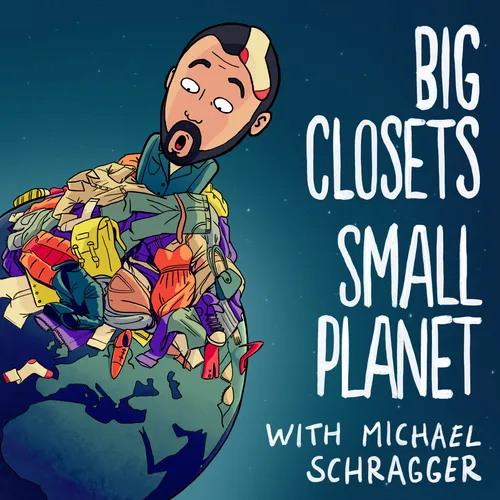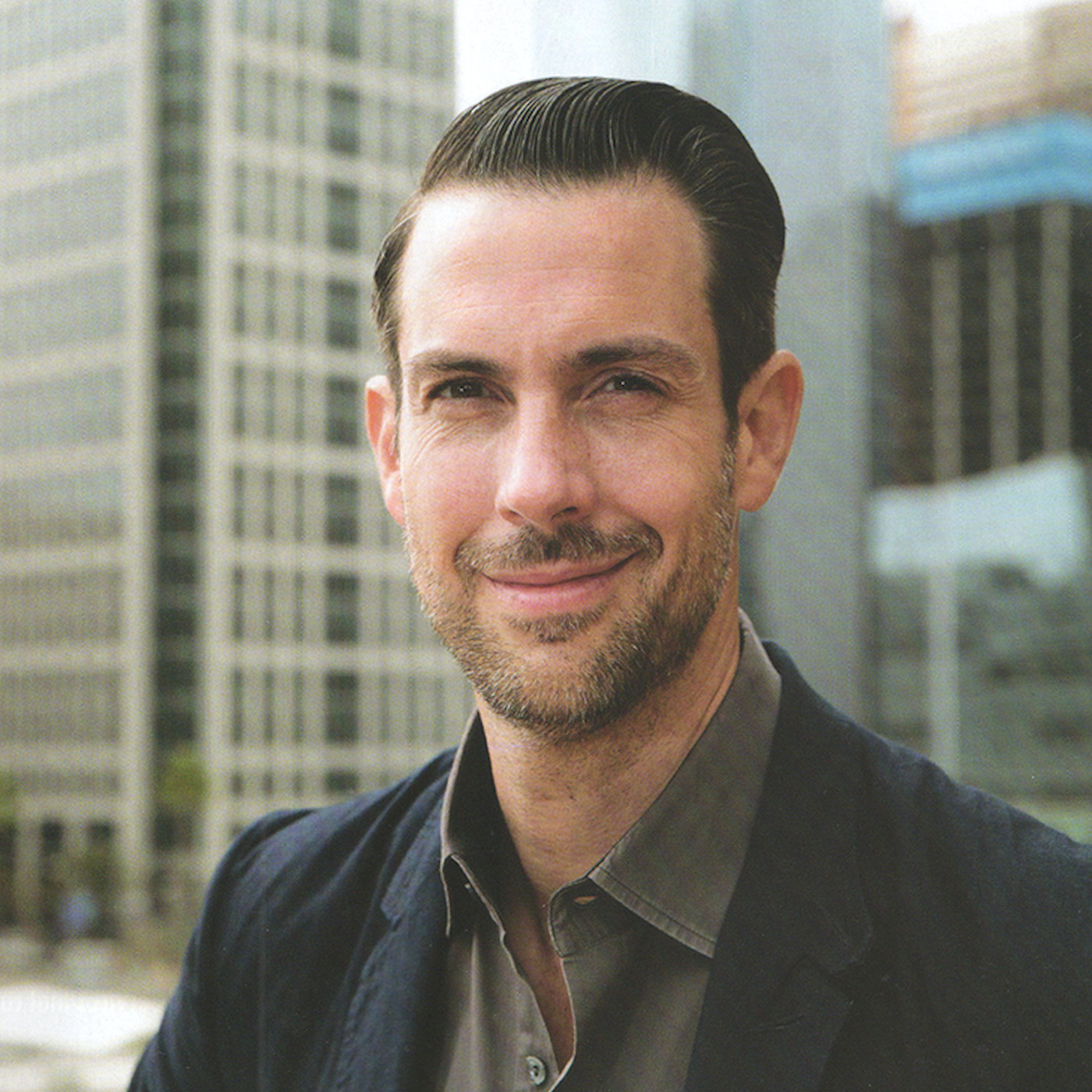
Big Closets Small Planet
Fashion and apparel. It touches nearly everyone. When its at its best, fashion and apparel is not only functional, but also fun, expressive, sexy, and for some businesses, very profitable. But when it is at its worst, fashion and apparel is superficial, exploitative, polluting and extremely wasteful - in other words the essence of unsustainable consumption. And while it is argued that the industry's rapid growth has created employment opportunities for more than 300 million people worldwide, especially for women in poorer countries and those in extreme poverty, many garment workers still struggle to earn enough to pay to meet even their most basic needs. More alarming is the fact that as the industry grows - by 2030 more than 8 billion people will live on the planet, and nearly 5 billion of these will be part of the global middle class - its negative environmental impacts may become unmanageable, potentially undermining its social benefits and contributing to ecosystem degradation on local, regional and global scales.
Who would have thought garments could be so destructive?
The fashion industry must change now, but will we manage in time? Join Mike Schragger, founder of the Sustainable Fashion Academy, as he explores the challenges, incentives and disincentives and emerging solutions needed to rapidly transform the industry. Listen in as he talks with the business leaders, activists, researchers, innovators and entrepreneurs, investors, legislators, consumers and citizens - who are racing against the clock to find solutions that will transform the industry, thus ensuring it truly operates for the benefit of people and the planet.
www.sustainablefashionacademy.org/podcasts/big-closets-small-planet
- Update frequency
- every 8 days
- Average duration
- 45 minutes
- Episodes
- 58
- Years Active
- 2018 - 2025

THOUGHT LEADERSHIP: Dr. Jennifer Hinton Thinks Not-for-Profit Business Models Can Help Address The Problems of Fast Fashion.
Is our current for-profit economic model a root cause of many of today's sustainability challenges generally, and specifically in apparel and fashion? Dr. Jennifer Hinton, author and Post-Doctoral Fe…

THOUGHT LEADERSHIP: For Ken Pucker, circularity is just another win-win fantasy & distraction for the fashion industry.
Ken Pucker, former Timberland COO and current Professor at the Fletcher School of Law and Diplomacy at Tufts, recently published a series of pieces critiquing the circular agenda for fashion. In this…

HOT OFF THE PRESS: Climate & The 1 Trillion Dollar Question

HOT OFF THE PRESS: Fashion is endangering our forests. A new report from Canopy weighs in on what we need to do about it.

HOT OFF THE PRESS: Are the Sustainable Apparel Coalition and the HIGG tools making a meaningful difference? A new report weighs in.

DEBATE: Part 2 - A proposed Swedish chemical tax on textiles - is this a case study in great government leadership or political greenwash?

DEBATE: Part 1 - A proposed Swedish chemical tax on textiles - is this a case study in great government leadership or political greenwash?
Sweden has a reputation for being a sustainability leader in many areas, so you can imagine how curious we were to learn about a newish proposal from the current Swedish government for a chemical tax…

THOUGHT LEADERSHIP: Sustainable investment expert Sasja Beslik thinks the fashion industry is a very poor performer and possibly a stranded asset.
Sasja Beslik, Head of Sustainable Finance Development at J Safra Sarasin, fled Bosnia when he was 18 to escape the war. He ended up in Sweden and today spends his time leveraging the power of the fin…

MAKE YOUR CASE: Phil Patterson believes the way we use chemicals in the textiles industry is broken and here is his plan to change it!

FACT OR FICTION: Alden Wicker and Sandra Roos think the fashion industry has a misinformation problem... do you agree?

THOUGHT LEADERSHIP: Femke Groothuis argues that tax reform is the best way to transform the apparel industry at the scale and pace required.
You've heard it before: The global environmental challenges we face are daunting and time sensitive. If we want to avoid catastrophic tipping points, we need to move quickly and ambitiously. If we wa…

LEADING CHANGE: What can a new psychology of climate action teach us about being better change agents?
As a listener of Big Closets Small Planet, you are likely interested and engaged in changing the apparel industry. So for those of you who are keen to strengthen your change agent skills, we are intr…

INDUSTRY UPDATE: Circular business models, like clothing resale and subscription rental, are taking off - but can they ever fully replace today's retail models and deliver the radical sustainability improvements we need?

FACT OR FICTION: Does the apparel industry really create more greenhouse gases than flights and shipping combined?
In this new segment we will explore commonly repeated "factoids" in order to determine whether they are substantive and useful. Perhaps you have heard the statement that the production and use of clo…

INDUSTRY UPDATE: COVID-19 - Are millions of workers at risk? Will Bangladesh ever be the same?
The impacts of the corona virus on the apparel sector have been fast and furious. We are all affected, but millions of low-wage garment workers are facing a potentially catastrophic situation. In thi…

INSPIRING INNOVATION: Is digital clothing the future of fashion and a solution to overconsumption?
The Fabricant, a digital fashion house, recently sold a piece of digital clothing - clothing that is only available in digital environments - for over 9000 USD. This experience helped them realise th…

HOT OFF THE PRESS: Pioneering analysis estimates 300 billion USD is needed by 2030...
...to develop and mainstream the sustainable apparel innovations required to meet key sustainability goals for the apparel industry. Listeners of this podcast series are familiar with our on-going fo…

MAKE YOUR CASE: Lewis Perkins warns the industry not to reinvent the wheel
In this new segment - Make Your Case - Big Closets Small Planet provides industry experts and stakeholders a platform to argue for a particular position or perspective. In this episode, Lewis Perkins…

INSPIRING INNOVATION: Will molecular bonding of fibers mean the end of polyester?
Here is a quick dose of inspiration! At Planet Textiles, Mike spoke to Spencer Null about Natural Fiber Welding's breakthrough solution: enabling natural fibers like cotton to behave like polyester. …

BUSINESS LEADERSHIP: The optimist CEO of Lenzing, Stefan Doboczky, weighs in on circular business models, short-termism & watchdogs.
Do you ever wonder how CEOs from some of our industry's most influential companies view the big social and environmental challenges we are facing today and the potential of business and innovation to…